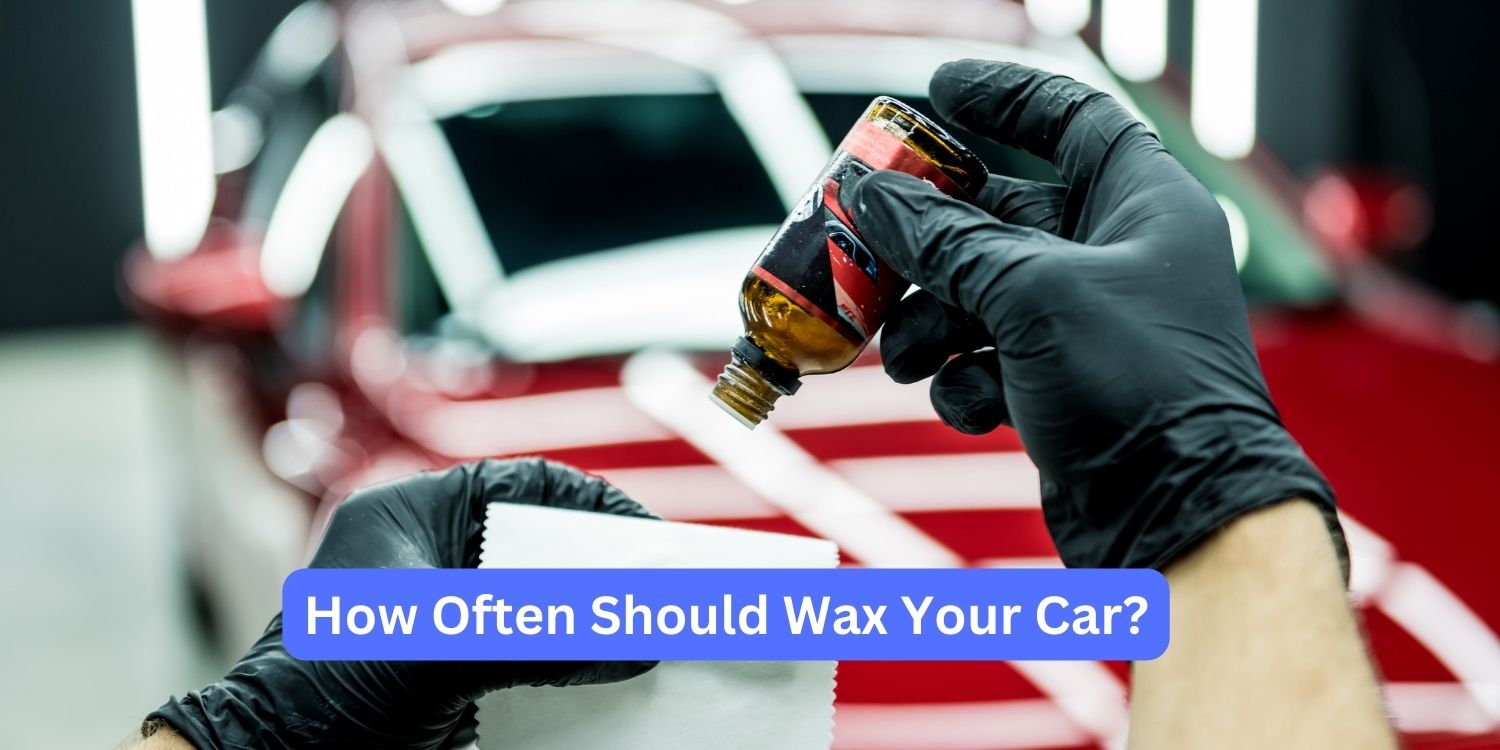Maintaining the luster and integrity of your car’s paintwork is essential, and regular waxing plays a pivotal role in this process.
By applying a layer of wax, you not only safeguard the paint from environmental hazards but also amplify its brilliance.
Consistent waxing keeps your vehicle gleaming and wards off rust and color fading, prolonging its life.
Frequency of Car Waxing- A Deep Dive
Let’s discuss this in detail
Why Waxing Your Car is Vital
Before we delve into how frequently you should wax, it’s important to understand wax’s protective role. It shields against UV rays, pollutants, and contaminants such as grime, road salt, and avian waste.
Waxing enriches the paint’s luster and depth and bestows your car a dazzling, showroom-like appearance.
Variables Affecting Waxing Intervals
Several factors influence the waxing cadence for your car, including:
Climatic Conditions
Harsh climates with intense sun, heavy precipitation, or snowfall necessitate more frequent waxing to offer adequate protection.

Usage Patterns
How often and under what conditions you drive your car can also dictate waxing frequency. Regular long-distance travel, for instance, might expose your car to more pollutants, calling for more regular waxing sessions.
Wax Varieties
The protection and durability offered by different waxes vary. While natural carnauba wax is celebrated for its exceptional shine and may require more frequent applications, synthetic waxes provide more enduring protection and can be applied less often.
Personal Choices
Car enthusiasts who prize a flawless finish may choose to wax more regularly, while others might wax less often due to time limitations or other priorities.
Indicators for Waxing Necessity
A lackluster appearance or diminished water beading on your car’s surface are tell-tale signs that it’s time for a wax. A simple water beading test can help you determine the current state of your car’s wax.
Suggested Waxing Timetable
While the ideal waxing frequency varies, the consensus among experts is to wax your car every three to six months to maintain optimal protection and sheen. This schedule can be adjusted based on the previously mentioned factors.
Waxing quarterly is recommended for those in harsher environments or whose cars endure more wear.
In contrast, biannual waxing may be sufficient for those in gentler climates with less frequent car usage.

Advantages of Routine Waxing
Regular waxing protects against pollutants, UV radiation, and severe weather. It not only preserves the paint but also elevates the overall aesthetic of your vehicle, simplifying the cleaning process.
Car Waxing Best Practices
To fully reap the benefits of waxing and extend the life of your car’s paint, keep these tips in mind:
- Clean your car thoroughly before waxing to remove any surface impurities.
- Apply a premium car wax uniformly with a foam pad or microfiber cloth.
- Tackle small areas at a time, adhering to the wax manufacturer’s guidelines for both application and removal.
- Allow the wax to set properly before buffing for a sleek, radiant finish.
- Maintain the waxed surface by regularly washing your car with a pH-neutral soap and drying it with a gentle microfiber cloth.
Pitfalls to Sidestep
Steer clear of common blunders such as using harsh products or waxing under direct sunlight, which can harm the paint and affect the wax’s effectiveness. Always comply with the wax manufacturer’s directions.
Learn More about What Color Car Gets Pulled Over the Most?
Frequently Asked Questions
Some frequently asked questions about waxing frequency are :
What’s the recommended waxing frequency for my car?
Various factors, including environmental exposure, driving habits, and personal choice influence waxing frequency.
Typically, waxing is advised every three to six months to ensure the best protection and shine.
Does waxing shield my car from environmental harm?
Wax serves as a protective layer, protecting the paint from UV damage, pollutants, and contaminants such as dust, road salt, and bird droppings.
How do I know when it’s time to wax my car?
Look for signs like a dull finish or reduced water beading on the surface, which suggest the need for waxing.
A straightforward water beading test can also help evaluate the wax’s condition.
Is there such a thing as too much waxing?
While regular waxing offers additional protection, overdoing it can result in product buildup and isn’t always necessary. It’s best to follow the recommended guidelines for the ideal outcome.
Do I need a specific wax type for my car?
Various waxes provide different levels of protection and durability. Select a wax that aligns with your needs, considering aspects like shine quality and longevity.
Can I wax my car under extreme weather conditions?
Waxing in direct sunlight or very high or low temperatures can adversely affect the application and durability of the wax. Choose a shaded spot with moderate temperatures for the best results.
How do I maximize the benefits of waxing?
For the greatest benefits, clean your car’s surface thoroughly before waxing, use a top-quality wax, apply it correctly, and maintain the waxed finish regularly.
What mistakes should I avoid when waxing my car?
Avoid errors such as using harsh products, waxing in direct sunlight, or applying excessive wax, as these can harm the paint and reduce the wax’s effectiveness.
Is it advisable to wax a brand-new car?
Yes, waxing a new car adds a layer of protection to the paint and maintains its luster. Just make sure the surface is clean and free of contaminants before waxing.
How long does a wax job protect my car’s paint?
Typically, a wax job can protect your car’s paint for three to six months, but this can vary based on factors like the environment and the car’s use.
Final Thoughts:
Deciphering the Waxing Schedule for Your Vehicle: In grasping the nuances of “How Often Should You Wax Your Car?”, it’s clear that regular waxing is not just about aesthetics, it’s a vital practice for safeguarding your vehicle’s exterior.
More than just an extension of routine cleaning, waxing is a defensive strategy against the rigors of the environment.
The ideal waxing frequency is not a fixed number but a decision shaped by personal circumstances, including weather conditions, driving patterns, and individual preferences.




